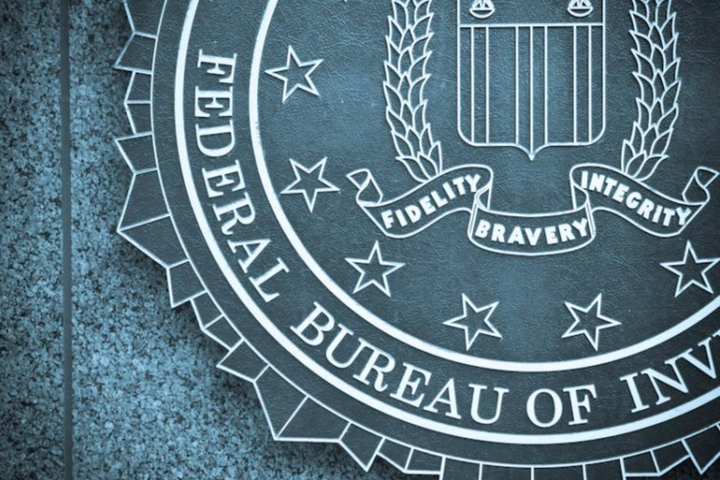Police Secrecy Hits A Snag After Florida Supreme Court Decision
The Florida Supreme Court rejected an effort by the state’s largest police union to prevent the disclosure of the names of officers involved in shootings.

All posts, including exclusive articles, are free to everyone in December. Become a paid subscriber and support independent journalism on whistleblowing, government secrecy, and press freedom.
The Florida Supreme Court rejected an effort by the state’s largest police union to block the disclosure of the names of officers involved in shootings.
In 2018, Florida voters approved an amendment known as “Marsy’s Law,” which enshrined the right of crime victims to “prevent the disclosure of information or records that could be used to locate or harass the victim or victim’s family.”
This decision could have national implications, however, the Florida Police Benevolent Association (FBPA) immediately announced that they would pursue a “legislative fix” to shield police that use deadly force from facing transparency and accountability.
As recounted by the state’s supreme court [PDF], on May 19, 2020, a Tallahassee officer shot and killed a man who “rushed” at the officer with a “hunting knife.” On May 27, another Tallahassee officer attempted to apprehend a person who had “stabbed a man to death.” The officer shot and killed this individual.
Both officers were cleared of any wrongdoing, and reporters pushed for the disclosure of their names. However, the police maintained that they were “victims” of assaults and “qualified for Marsy’s Law protections.” The police demanded that the City of Tallahassee keep their names secret.
The City of Tallahassee was not persuaded so the Florida Police Benevolent Association sued the city in June 12, 2020. (The lawsuit was filed around the time of a major uprising in response to policing that killed George Floyd and Breonna Taylor.)
“Marsy’s Law guarantees to no victim—police officer or otherwise— the categorical right to withhold his or her name from disclosure,” the Florida Supreme Court determined.
While noting that the law protects “victims” from the “disclosure of information or records that could be used to locate or harass” them or their families, the court clearly stated, “One’s name, standing alone, is not that kind of information or record; it communicates nothing about where the individual can be found and bothered.”
To bar the name of a victim from disclosure would likely undermine the right of a defendant to “confront adverse witnesses at trial,” the court added.
A coalition of news media and press freedom groups led by Reporters Committee for Freedom of the Press (RCFP) recognized the implications if the police union’s broad interpretation of Marsy’s Law was accepted.
While the Florida Supreme Court largely avoided the issue of whether police could claim “victim” status under the law, the coalition insisted [PDF], “Law enforcement officers should not be permitted to evade the transparency required of them as public officials by claiming ‘crime victim’ status.”
“Marsy’s Law was conceived to codify the rights of crime victims navigating the law enforcement and judicial systems. It was not intended to be invoked by law enforcement officers to shield their official conduct from public scrutiny.”
"Indeed, unlike your average public citizen,” the coalition continued, “law enforcement officers are in a unique position of power and responsibility—they have access to a wealth of information and government resources, and can utilize numerous platforms to amplify their voice and exert power in the criminal justice system.”
“The misuse of Marsy’s Law prevents the public from effectively reviewing police actions, and thwarts efforts to hold officers accountable for misconduct,” the coalition asserted.
Yet as Caitlin Vogus, the advocacy director for the Freedom of the Press Foundation, previously detailed, police in the United States have routinely blocked the disclosure of their identities to the public or the press by invoking this law.
The law was first passed in California in 2008, but since its passage, about a dozen states, including Ohio, Kentucky, and Wisconsin, have adopted a similar law.
Vogus wrote,“In Wisconsin, the identity of a police officer who shot a suicidal man at the end of June has been withheld, even from court records, thanks to its Marsy’s Law. In Ohio, the Columbus police department is withholding the names of the officers involved in four separate fatal shootings in July and August, citing its Marsy’s Law. In one instance, the Columbus police are refusing to release the names of all eight officers involved in a shootout on a highway that left one person dead.”
Earlier this year, The Dissenter covered a police department in Virginia that twisted the state’s freedom of information law to try and block the names of officers from being shared with OpenOversightVA, a group of volunteer researchers who maintain a statewide police transparency database.
“At some point, any officer could go ‘undercover,’ therefore, the names of all officers of lieutenant rank and below qualify to be shielded under Virginia FOIA law which provides exemptions for undercover officers,” the police department argued.
The Arkansas Supreme Court ruled on February 3, 2022, that Arkansas State Police could hide photos of all troopers who do not work undercover from the public because releasing the photos “would effectively identify troopers who work undercover.”
Back in 2016, the Virginia state legislature advanced a bill to prevent the release of officers’ names to the press and public.
Whether it be laws intended to protect crime victims or open records laws, police associations often do everything and anything to ensure officers never face accountability or scrutiny for their actions.
Police in the United States kill at least a 1,000 people every year. Historically, a minuscule number of officers who use deadly force are prosecuted.
Courts have typically been rather deferential to police. In this instance, a reasonable interpretation of the law that favors openness in government fortunately prevailed.




Comments ()